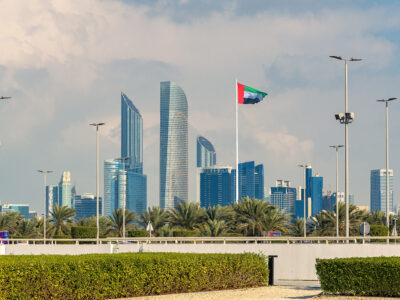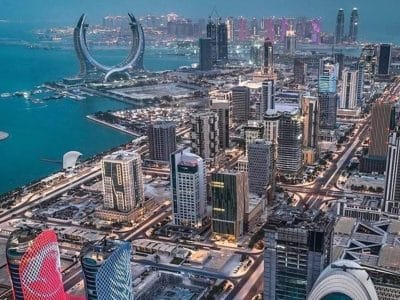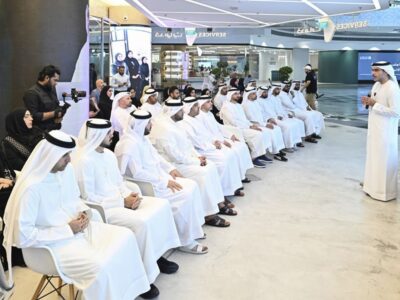A fully-integrated aluminium industrial complex being built as a JV between Alcoa and Saudi Arabian Mining Co. (Ma’aden) alone involves a capital investment of about $10.5bn. More foreign investors are looking to the Gulf for aluminium business due to its inexpensive gas stocks and strategic geographic location, with Europe already sourcing around 6% of its aluminium demand from the region.
The UAE and Saudi Arabia rank among the Gulf’s two biggest aluminium markets. Smelting operations managed by the Dubai Aluminium Company Ltd. (Dubal) and Emirates Aluminium in Abu Dhabi produce around 1.8 million tons of aluminium a year, or 40% of total annual Middle Eastern production.
“Aluminium has emerged as one of the key economic activities of the Arab World, and complements region-wide efforts to diversify national development beyond oil and gas,” said Gulf Aluminium Council general secretary Mahmood Daylami.
Last year Emal commenced construction on Phase Two of its $5.7bn smelter project. A symbolic ground-breaking ceremony marked the start of the Al Taweelah smelter’s second phase, with completion and full production planned to be reached in little more than two years, Emal said in a statement.
This will boost Emal’s total production capacity to around 1.3 million metric tonnes by the end of 2014, making Emal one of the largest single-site producers of primary aluminium in the world. Emal’s board, shareholders and other VIP guests visited the site to witness the first step in the $4.5bn expansion.
Phase one was completed ahead of time and to budget, with the company supplying 280 customers in 36 countries with high quality aluminium. Phase two will include the addition of a new potline and will result in the world’s longest ever single smelting line.
Saeed Fadhel Al Mazrooei, Emal president and CEO, said: “When complete, Emal will take its place as the largest and most advanced single-site producers of primary aluminium in the world, and one of the leading contributors to deliver a stable and prosperous Emirati future.”
Emal is a 50-50 joint venture between Dubai Aluminium Company Ltd. and Mubadala Development Company, Abu Dhabi’s investment vehicle. The company, which supplies customers in 36 countries, first started production from its $5.7bn project located at Al Taweelha in Abu Dhabi in January 2010.
Contracts worth more than $700m have been awarded as part of the expansion. The most significant contract was signed with SNC Lavalin to carry out engineering, procurement and construction management (EPCM) at the plant, which is essential if Emal is to meet its target of achieving first hot metal in Q1 2014. SNC Lavalin provided the same support and services during Phase One.
The award of the contracts for long-lead items packages is vital for EMAL to meet the challenging timetable for Phase Two. “Our target to achieve full production by 2014 depends on the successful execution of these contracts. We are confident that we have engaged the best partners with the best technology and will get the best outcome,” said Al Mazrooei.
Article continued on next page…
The other successful companies in this round of contract awards were: Sojitz/Fuji – transformers, rectifiers; Sojitz/Hyundai – 400kV Intertie transformer; ABB Switzerland – 220kV GIS; Alstom Norway – gas and fume treatment centres; Outotec – green carbon plant, butts crushing, anode rodding shop and hot bath removal; and Rio Tinto Alcan Pechiney – anode baking furnace technology.
Elsewhere in the region, Sohar Aluminium also mulled a production expansion last year. The Omani manufacturer, which produces 740,000 tonnes of aluminium annually and recently produced its millionth tonne, started its first pot line in June 2008.
Formed by a joint venture of Oman Oil (40% stake), Abu Dhabi National Energy Company PJSC (40%) and Rio Tinto Alcan (20%), the company saw high initial investment and boasts a 1,000MW power station and world’s longest single potline. It is also the first smelter in the world to implement Rio Tinto Alcan’s benchmark AP36 smelting technology.
Henk Pauw, CEO, told local press in Oman that the rough expenditure for the expansion should be higher than the $4bn originally mooted, but that it depended on the gas supply. He added that the Ministry of Oil & Gas was negotiating with British oil company BP as to the cost of the natural gas to power the facility. “Until that is concluded, it is very hard for me to speculate on what it means for us,” he told Times of Oman.
Sohar Aluminium, which produces aluminium ingots and sows, spends 56% of its cash in the domestic market, which stood at $50m last year. It hawarded a number of tenders in 2011 for the development of its facilities, including awards to Al Makhadram National Associated and Petron Gulf.
Company expansion would come at the same time that Oman undergoes a wider industrial revolution to develop its manufacturing capabilities. This includes significant projects to develop the ports of Salalah and Sohar to expand logistics services and the possibility of manufacturing.
Aluminium is a product with unique properties, making it a natural partner for the building industry. Thanks to its strength, durability, corrosion resistance and recyclability, it has become an essential product for the building industry. Over the past 50 years, its use in building applications has shown continuous and consistent growth.
Aluminium extruded, rolled and cast products are commonly used for window frames and other glazed structures, ranging from shopfronts to large roof superstructures for shopping centres and stadiums, for roofing, siding, and curtain walling, as well as for cast door handles, catches for windows, staircases, heating and air-conditioning systems. Most recently, aluminium has played a significant role in the renovation of historic buildings. The characteristics and properties of aluminium as a material have lead to revolutionary and innovative changes in building techniques and architectural and engineering projects.
In addition to their particularly long service life, aluminium construction industry products can either be used after dismantling or indefinitely recycled, without any loss of the materials’ basic qualities and properties. The use of recycled aluminium also offers substantial energy benefits. Remelting used aluminium requires only 5% of the energy needed to produce primary metal. Thus, rather then contributing to society’s growing waste problem, aluminium can be remelted and reformed to produce a new generation of building parts.
Aluminium, in general, has always been recycled at a higher rate than most other raw materials. Given the necessary infrastructure, it is possible to recycle all aluminium construction industry applications, for several reasons.








